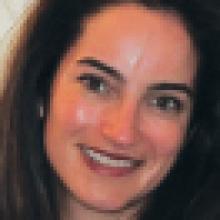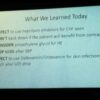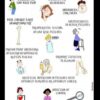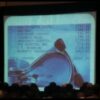Nine Things Hospitalists Need to Know about Treating Patients with Endocrine Disorders
Diabetes is as prevalent in hospitals today as lab coats and heart monitors. More than 8% of the population—almost 26 million people—and nearly 27% (11 million) of Americans 65 or older have diabetes, according to American Diabetes Association (ADA) statistics. That makes diabetes one of the most common conditions hospitalists face day in and day out.
Other endocrine disorders also pose a challenge to hospitalists because they may be relatively uncommon, endocrinologists say.
The Hospitalist spoke to several endocrinologists and veteran hospitalists, mining their backgrounds and observations for tips on caring for hospitalized patients with endocrine disorders. Here are nine things they think hospitalists need to know:
1. Realize the far-reaching impact of good care for diabetic patients.
Part of the reason this is important is the numbers of patients with the disease who will be hospitalized and come under the care of a hospitalist.
“They’re coming in for a host of medical conditions, not the least of which is that diabetes is a comorbid factor that goes along with it,” says John Anderson, MD, the ADA’s immediate past president of medicine and science and an internist and diabetician at The Frist Clinic in Nashville, Tenn. “For those who are critically ill—those having bypass, those having stroke—diabetes is overrepresented even more once they get inside the hospital and in the intensive care unit.”
Job No. 1, controlling blood sugar, can have broad implications, he says.
“We know that control of their glucose through the hospital stay actually makes a difference in long-term outcomes, particularly things like surgery, coronary bypass grafting, that type of thing,” he says, noting that the standard of care is to try to keep glucose under 200. “A lot of studies have been done that demonstrate that really poor control of glucose in the hospital, regardless of the disease entity they’re in with, can lead to worsening long-term outcomes. It’s really imperative that you control the blood sugar.1,2

“A lot of studies have been done that demonstrate that really poor control of glucose in the hospital, regardless of the disease entity they’re in with, can lead to worsening long-term outcomes. It’s really imperative that you control the blood sugar.1,2 However, if you control it so tightly that these patients are dropping their blood sugar and having significant hypoglycemia problems in the hospital, that’s not good either.”
—John Anderson, MD, past president, American Diabetes Association, internist and diabetician, The Frist Clinic, Nashville, Tenn.
“However, the other part of this is…that if you control it so tightly that these patients are dropping their blood sugar and having significant hypoglycemia problems in the hospital, that’s not good either.”
2. You probably shouldn’t be testing for thyroid-stimulating hormone (TSH) level by itself in an acutely ill inpatient.
Simply put, the results probably won’t be useful, says Tamara Wexler, MD, PhD, an endocrinologist attending at Massachusetts General Hospital in Boston.
“TSH alone, for some reason, seems to be often measured,” she says, but “it’s extremely rarely indicated during acute hospitalization.”
TSH is “notoriously spurious” in inpatients, she adds, because the stress of an illness can make the test difficult to interpret.
“Many endocrine hormone levels are affected by stress, for example, and thus are better measured in an outpatient setting than in an acute hospitalized illness because of the impact of the illness on interpreting the test results,” she says.
Euthyroid sick syndrome—or “sick euthyroid”—is a term used for abnormalities in thyroid tests in patients with systemic illnesses that are nonthyroidal.
In cases in which thyroid dysfunction is strongly suspected, TSH should be measured in conjunction with other levels, such as a free thyroxine (free T4) level, Dr. Wexler says.







